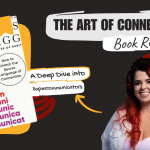There are two things that buyers and sellers must experience with their agent. These 2 elements form the DNA of every successful relationship …. TRUST and CONFIDENCE.
Without a doubt, all of the training in real estate focuses quality time on teaching us agents how to build our personal confidence, and indeed, how to effectively expose it to our clients.
Watch my video below for more about the universal LAW that effects your relationships with your clients, and continue the article below the jump.
Confidence vs. Con Man
Confidence is an essential element of success. We have always known that clients want to work with confident people. The term “Con Man” portrays the criminal ability of someone who is able to separate individuals from their money even when the person feels nervously reluctant to do so.
How does that happen? First of all the target of the “Con Man” really wants to believe the story. They eventually borrow the persuasive “Confidence” shown by the “Con Man” in order to overcome their own lack of belief.
Using the same basic power of seductive confidence, we have positively bought into the training and coaching taught us to distract our clients with this persuasive con. We memorized powerful words and expressions from prepared scripts. We learned how to handle every conceivable objection. We were even taught where we should sit in the client’s house, and everything else we could think of in between to set the stage for success using confidence-creating techniques.
The old formula
And with practice we got great at it. It became pure theater. We created Oscar-worthy performances as we followed the direction and tutelage of the legends. Remember this one? The great Floyd Wickman taught every Sweathog to follow a simple but profound formula …
- Knock on the door
- Smile and pay them a compliment
- Ask for a glass of water
- Let’s sit at the kitchen table and let the presentation begin
You know this formula … and probably use it too … because IT WORKS!
Now don’t get me wrong, I’m not knocking Floyd in any way. In fact I salute him for the years of dedication and service he has provided the real estate industry. He is a legend that has earned our respect.
Know, Like, and Trust
But over time buyers and sellers have matured and become less susceptible to performances, because they have lost their naiveté as they acquired more understanding and knowledge of the real estate marketplace. They shifted their dependency. They realized, for a variety of reasons mostly coming from personal experience (the internet) that their need for an agent they could KNOW, LIKE and TRUST was more compelling.
Remember that people in general may not remember what you said, but they do remember how you made them feel!
For example, some of you might remember the time you would take your car to a small, local garage for repairs. However, as cars and their engines have become so exotic you don’t go to that same repair shop anymore.
Not because you don’t like them anymore, but because you have probably lost trust in their ability to solve the problem. Frankly, that may not be true at all -but it is what you have come to believe. The era of problem solving has come of age.
The error of our ways
For years and years … decade after decade…we made such a critical error. We didn’t see it at the time and had no idea of the impending future crisis it would foster. Back then we wanted our clients to see us as the ones who had all the answers and could sell their home with a certain ease. No doubt some of you in one way or another still say … I WILL SELL YOUR HOME AT THE HIGHEST PRICE, IN THE SHORTEST PERIOD OF TIME, WITH THE LEAST AMOUNT OF INCONVENIENCE!
Do you think clients believe that anymore? Of course not. But after years of promoting this concept we lost the high ground. The questioning of commission rates and the plethora of related issues has plagued the business. They questioned our worthiness. Even today so many agents brag and boast about selling a home “in 4 days and 20% over list”. Why?
So what do you think is the growing perception of both buyers and especially sellers?
“Why do I need an agent?”
Here is what they might be concluding: “WHY DO I NEED AN AGENT if is that simple?” Perhaps we are overselling simplicity at a future cost that will be, and may already have become, chaotic.
We have always known that our job is far more involved and demanding than we ever declared. We have always wanted our industry to be elevated to the professional status it deserves. But so long as our potential clients continue to believe that our career does not qualify as a profession, they will continue to question our worthiness.
So, what can YOU do to position yourself as a true professional?
OK … ask yourself this … “why do I consider my doctor, my lawyer and my accountant as professionals?” Could it be as simple as the fact that they know the answers and you don’t?
We trust our doctors who comfort our fears professionally as they the address the potential issues and complications of our surgery. They do not diminish the situation, and we put our trust in them as a result.
Likewise, we trust our attorney who has professionally informed us of all the issues and explained how they will navigate through the legal process in hopes of a successful resolution.
Without fully understanding the process that we are going through with our doctors and lawyers-the perils and the pitfalls we may face- we certainly would never give them the professional status they deserve.
The 3 “P”s
This is exactly the same situation we face in the real estate profession. We have allowed clients to believe it is as simple as the 3 “P”s:
- PUT a sign on the lawn
- PUT it on the MLS
- PRAY it sells
It would be difficult for me to ultimately trust someone if I felt I could do the same thing. Commission would definitely be devalued as would my perceived confidence in that sales person.
Rather than downplay and hide the complexities of the real estate process (and it is a process), why not bring them to the surface and make our clients aware?
So how do we do this, you ask?
The ’88 Types of Turbulence’
I saw a very elegant system, a consultative approach to real estate as taught by renowned coach/trainer Joe Stumpf.
Joe has a unique ability to reduce any problem to simplicity. In this particular case of underselling and under-telling our clients about what actually happens behind the scene in most real estate transactions, Joe created a truly fantastic idea.
It is so good that I’m scratching my head and wondering “Why didn’t I think of it?”
He calls it The Turbulence Touchpoint, and compiles “88 Types of Turbulence”- turbulence being anything that might go wrong in any real estate transaction. He compartmentalized these turbulences into the 8 areas controlling the transaction:
- The Buyer/Borrower
- The Seller
- The Realtor(s)
- The Lender(s)
- The Property
- The Escrow/Title Company
- The Appraiser
- The Inspector
The philosophy he coaches and teaches is to encourage us to boldly inform our clients of the potential for turbulence-indeed, the likelihood of it. It is the professional thing to do.
The Turbulence Touchpoint list should be shown and given to every potential real estate client. Clearly it is designed to establish the similar trust that a surgeon gives to their patient and an attorney gives to their client.
So when do you do this, you ask?
During your initial consultation with your prospective client you will hand them the list of turbulences and then make reference to the fact that in all your years in real estate, that you have discovered things can and will go wrong … that’s just life.
“But rather than be shocked and alarmed, Mr. and Mrs. Client, should something on the list arise know that we will be prepared and deal with it together.”
FREE download
Joe also composed a corresponding Turbulence Touchpoint Letter you can use. At this point what I would recommend is that you use the link below and see for yourself exactly how Joe effectively uses both for maximum effect.
You can download the letter and list by visiting this link:
Stop being intimidated by the reality of turbulence and embrace it as an opportunity to anchor yourself as the professional your clients expect and deserve.
Sure, it may get bumpy at times and yes, we may drift off course. But your pledge is that you will get them safely to their destination … like a good pilot would do.








Leave a Reply